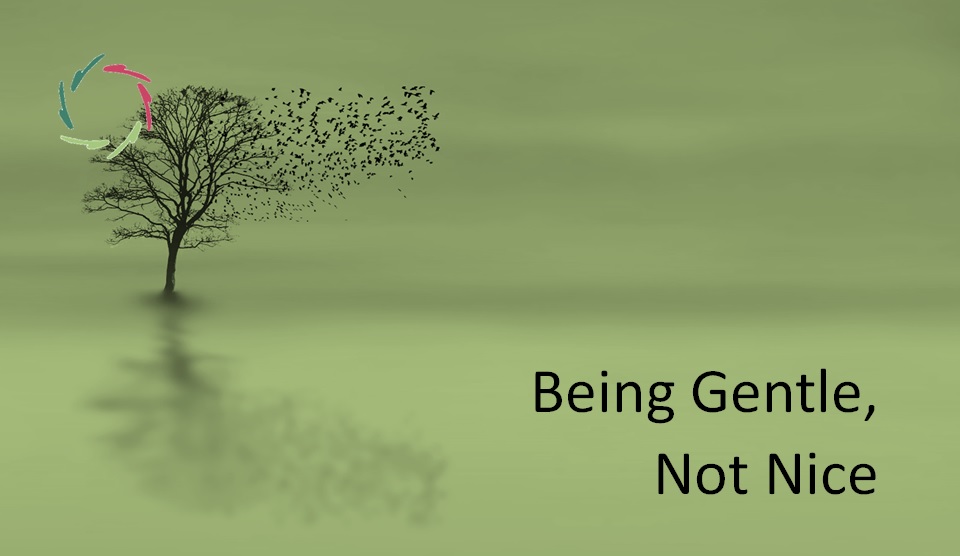Being Gentle, Not Nice

About becoming someone worthy in social context while staying completely yourself in a most humane way.
Words, words, words.
Forget for this text the meanings you usually give to the key words used in it. Let’s skip over them. What I mean will be much clearer if you let it be vague.
Well, this way, we’ve already started.
Nice can be weak in a hard environment.
Even if you try not to be weak, others may see you as such, react to you and thereby functionally make you such.
And you don’t want to be weak. Being weak can make you hard. [see: ” Weak, Hard, Strong, Gentle“]
You want to be nice, but being nice can make you weak, functionally. Then you need a hard shell, but where is the nicety in that?
So, don’t be nice. Don’t make any effort towards being nice, even if others are nice to you.
Female?
I guess this admonition might be somewhat more relevant for women. Is it a cultural thing? Does it matter if it’s cultural in all cultures? By nature, women may be nicer. That may be the main reason why they get exploited more rashly. So, not because they are weaker, but because they are functionally weaker.
I’m not saying that anyone should just be less nice.
Being gentle, not nice.
By being gentle, you can be nice too, only not directly, not straightforwardly. You see, by striving to be nice as such, it’s a different nicety than the one that sprouts from gentleness. It’s a nicety that in certain circumstances invites un-niceties. You want, and you don’t get.
Being gentle is putting one step backward to put two steps forward and more. Eventually, it allows you to be nicer. At the start, this might feel somewhat counter-intuitive.
You get the vagueness clear enough?
The step backward is towards yourself, your ‘deeper self.’ It is a step towards respecting yourself as a total person, more than an element in a social context.
You are.
That’s the trick. You are, or you are not. When you are, you can let others see you. Let them look. Make it worthwhile what they are looking at. That is: be yourself, not someone else.
Being someone else, you can be nice and yet.
Being yourself, you are gentle. You are generous. You give. You don’t let yourself be taken.
Moreover, being yourself is attractive.
You might try it out, carefully, not out of not daring but because carefully, you may better understand what is happening.
The step backward enables you to show yourself more. It is like a recipient that you can fill to the brim with being nice. Then it flows over, and still, you’re not losing anything. Nothing is being taken away from you. You can give just as much as you prefer yourself.
People will be grateful even just for being able to be with you
and you can be thankful to them.


